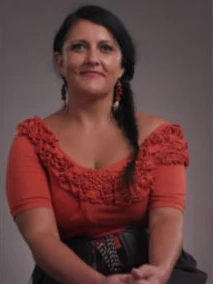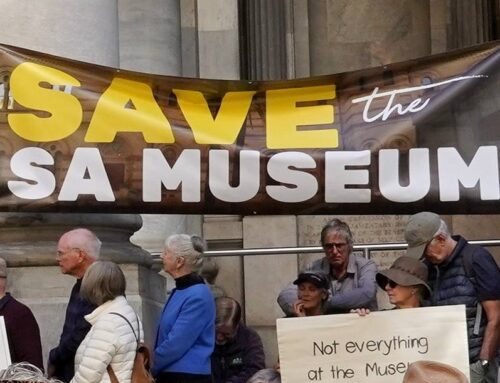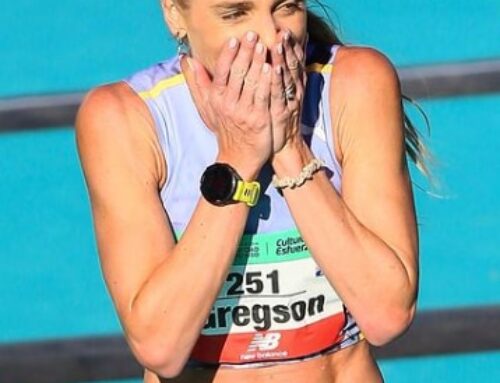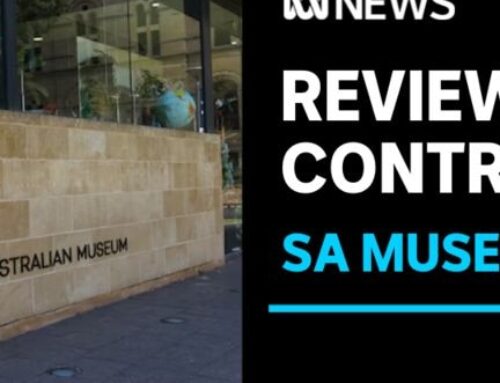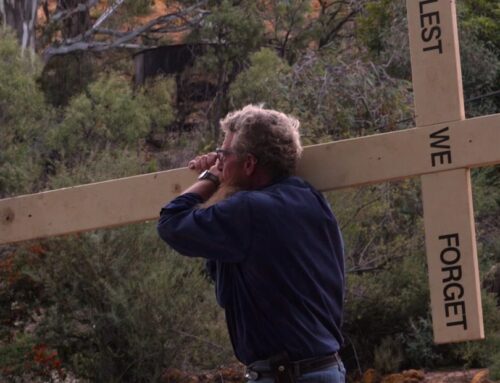They come from varied backgrounds and have very different life stories to tell, but the finalists for the Australian of the Year Local Hero award have a lot in common with each other.
They have all worked hard over many years to make their community a better, kinder, more inclusive place.
Some have started social enterprises to help former refugees find jobs and connect with their new community, some have started charities that give free haircuts and conversations to the marginalised in society, and some have spent their time volunteering to help both individuals and whole townships.
Through big actions and many, many small ones, they’ve all made people smile and helped make the world a little better.
Stopping country people drowning in alcohol
“Who better to advocate for change around alcoholism in the bush than an alcoholic in the bush?” the Australian of the Year Local Hero for NSW, Shanna Whan, said.
Seven years ago, Ms Whan said she was a “desperately broken, suicidal woman” who had lost nearly everything due to her drinking.
Growing up in the country, Ms Whan said she had a beautiful and simple childhood and she loved her life.
“All that would be taken away in a series of traumatic events when I was an 18-year-old kid just out of boarding school,” she said.
Ms Whan experienced a series of sexual assaults that left her afraid and unsure of how to cope.
“There was no help on hand, there were no services, there was nowhere to go and no-one to speak to,” she said.
“But what was prolific and abundant and encouraged was alcohol.”
What helped Ms Whan recover from alcoholism was when she connected with another woman who had gone through similar experiences.
“I identified with this person. They shared their story and it made sense to me,” she said.
This inspired Ms Whan to create Sober in the Country, a not-for-profit peer support group for people struggling with alcohol who live in the country.
“Through connection and community we create social change,” she said.
The future is in good hands
“This school in the ACT is changing people’s perceptions — not on a local scale, not nationally, but now we’re reaching people globally,” said Luke Ferguson, the ACT Australian of the Year Local Hero.
When Mr Ferguson started working at The Woden School in Canberra, a school for students with disability, he noticed there was a bunch of music equipment that wasn’t being used and he decided to put it all to good use by helping the students put on music events and productions.
“It’s so empowering, whether it’s a disco or recording a music video, there is an outcome and its tangible,” he said.
With Mr Ferguson’s help, the students organise dance nights doing everything from designing promotional posters to setting up the event and DJing.
They also wrote a song and produced a music video called Labels Don’t Define Us, which quickly racked up views online and was featured by the United Nations’ Social Development Network.
All of this doesn’t really surprise Mr Ferguson though, as he said with enough support and encouragement all kids can succeed.
“You’ve got to be there to support and you’ve got to give them the opportunities to shine — there’s nothing more important than that.
“The future is in very, very good hands. Trust me.”
Giving women strength
“When women are strong, everyone around them is strong,” said Saba Abraham, founder and manager of social enterprise Mu’ooz Restaurant and Catering, the Australian of the Year Local Hero for Queensland.
Ms Abraham knows from first-hand experience the struggles of a former refugee trying to make a new life in Australia.
“You have to start to live your life and then come the challenges, which is a language barrier and cultural barrier, being discriminated against … it is really hard,” she said.
Ms Abraham started the social enterprise Mu’ooz Restaurant and Catering in Brisbane in 2003 to help other former refugee women gain work skills and make connections in their new society to help them overcome the challenges they may face.
“The hardship they’ve been through, whether it’s torture, trauma, other problems, they find that coming to us and talking to us about their problems and being understood, it gives them healing,” she said.
“[We] help them to build their confidence and build connections and find a job.”
Helping the community reconnect and rebuild
“It’s a great feeling to know you’re helping,” said Leo op den Brouw, volunteer with the Mallacoota State Emergency Service and the Australian of the Year Local Hero for Victoria.
Mr op den Brouw has lived in Mallacoota for 40 years and has volunteered in a number of roles for the community there.
“For me personally as a volunteer … what I get out of it is a sense of satisfaction in seeing a job done, in helping people in a time of need, helping to ease their pain and their difficulties, and I also get a lot of satisfaction because we have a great team,” he said.
Mallacoota was badly hit by the 2019 bushfires, and while the volunteers of the emergency services played a vital role in helping to protect lives while the fires were burning, they played an equally vital role once the flames were all out, Mr op den Brouw said.
“Those volunteers are helping the community to reconnect, to rebuild, and to see hope for the future,” he said.
“It’s a great feeling to know you’re helping people.”
Bringing lymphoedema to the table
“It continues to make me so happy to know that I’m a part of this and I’m helping people and making it better,” said Monique Bareham, president of the Lymphoedema Association SA Inc and SA’s Australian of the Year Local Hero.
Like many people, Ms Bareham only learnt about lymphoedema when she developed the chronic and incurable condition from treatment for breast cancer about a decade ago.
“At the time there simply were very little treatment options, there was no support, there was no guidance and, above all, there was absolutely no financial subsidy for the very expensive treatment options and garments that you need,” she said.
Lymphoedema is a swelling of the tissue, most commonly in the arms or the legs, but can occur in other parts of the body and can be caused by damage from treatment for cancer.
Ms Bareham said when she was first diagnosed with the condition it was not a widely talked about or well-known problem, even in the medical professions, but years of campaigning has made a difference.
“Lymphoedema is at the table,” she said.
“It is in the common vernacular of our medical professionals, it’s not hidden, it’s not ignored, it’s not pushed aside.”
Making connections through haircuts
“I always feel really relaxed when I get a haircut. That feeling that I have is what I wanted to give to other people,” said Craig Hollywood, founder and CEO of Short Back & Sidewalks and the Australian of the Year Local Hero for WA.
Mr Hollywood said he was the last person you would want to give you a haircut, but his charity Short Back & Sidewalks has given countless free haircuts to people in need all over the country.
Mr Hollywood had spent time volunteering with other community organisations and he noticed that what was often missing was a chance for people doing it tough to sit down, relax, and have a chat with someone.
He then got the idea of offering free haircuts to people in need to not just give them a fresh new look, but to give them the time and space to connect with another person.
“I think, some of the time, you speak to a hairdresser in a way that you don’t speak to others,” he said.
“We’re a volunteer-run organisation … we have a large group of people who are working on the same goal, and that’s to create positive connections.
“Ultimately my mission is to create positive connections with members of the community in need, one free haircut at a time.”
Real people sharing their real stories to build a stronger community
“The thing that really stuck with me is how horrific family and domestic violence is. It really affects every aspect of your life,” said Rebecca Forrest, event organiser and fundraiser and the NT’s Australian of the Year Local Hero.
Ms Forrest saw the impact of domestic violence in her work with the NT’s Police, Fire and Emergency agency, but that wasn’t the only place she saw it.
“The harsh reality is I was a victim myself. I was going home … to an unsafe home,” she said.
With support from others, Ms Forrest was able to get out of the violent situation she was in and she decided she wanted to help others also find the strength to leave.
“When the community has courage, we have a stronger community,” she said.
She started No One Left Behind, which holds events across Darwin and the NT with a focus on women and men sharing stories of their experiences.
“These are real stories, delivered by real people,” she said.
“When we share these stories we build courage and that strengthens community.
“There is help out there, no matter your situation, the circumstances you’re in. Please ask for it, people are willing to give.”
Giving the freedom and opportunities of driving
“Time and time again, I’m surprised at their reaction,” said Kimberley (Kim) Smith APM, volunteer with the Rotary Club of Sullivans Cove and the Tasmanian Australian of the Year Local Hero.
Mr Smith joined the Rotary Club of Sullivans Cove after he retired from the police force.
Through the club, he tutors people who are trying to get their learner’s driver’s licence but have problems passing the written test.
Mr Smith said he worked with a range of people, from former refugees who struggled with English to young people from disadvantaged backgrounds who often had no-one in their lives who could help them learn to drive.
“When they got in front of a computer screen to do the online test, it was like a blur to them, or they couldn’t read the questions, or they just couldn’t understand the concepts,” Mr Smith said.
“I see it time and time again, with young people when they’ve passed. I’ve seen them grab their youth workers and lift them off their feet.”
It may seem like a small thing to many, but having a driver’s licence can change a person’s life, Mr Smith said.
“Getting a learner’s licence is so, so important.”
Posted , updated

